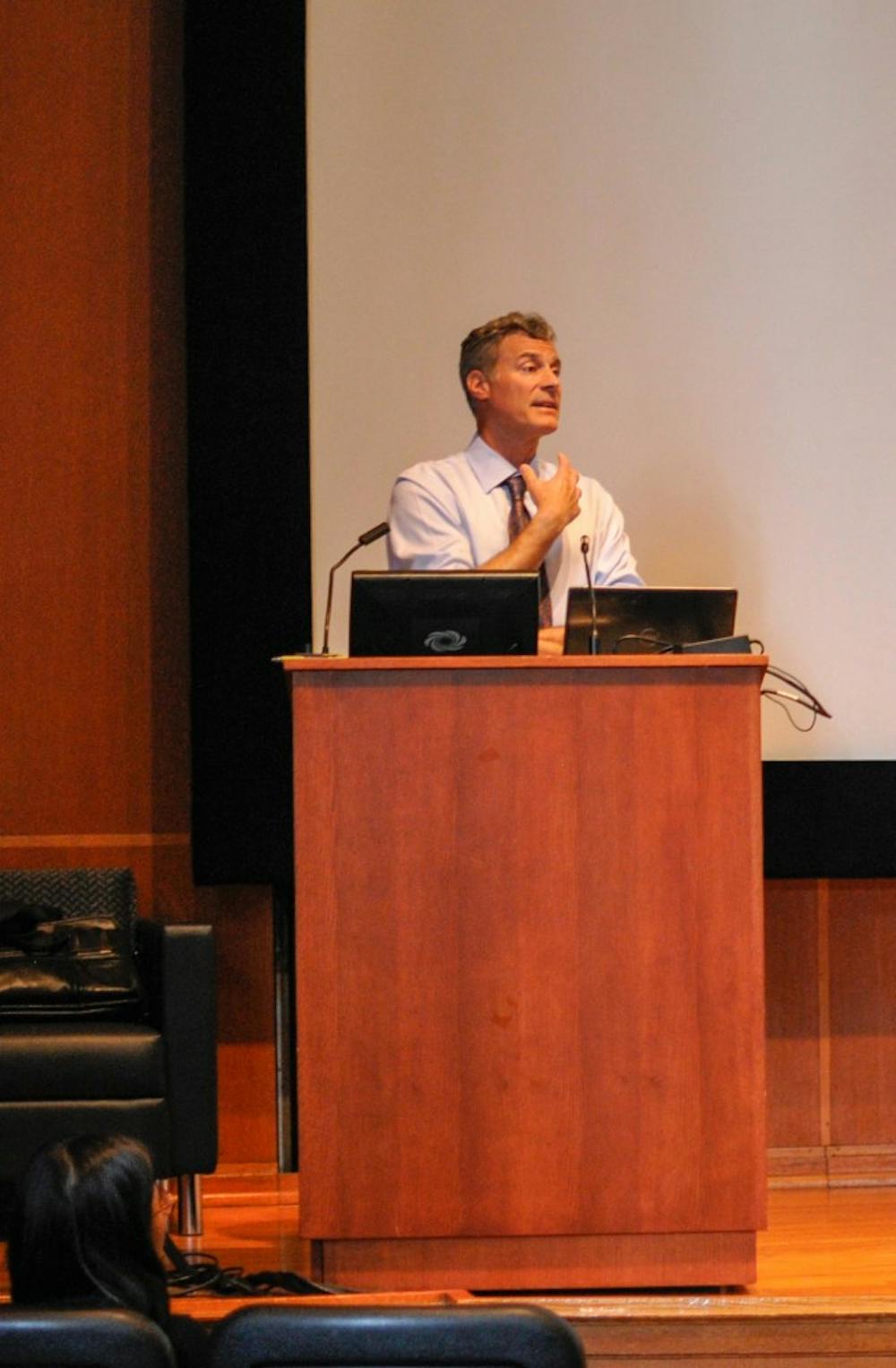 Alan Krueger spoke to seniors on Thursday about the difficulty of managing the economy during the recession and the importance that rising inequality could play in the future of the United States.
Alan Krueger spoke to seniors on Thursday about the difficulty of managing the economy during the recession and the importance that rising inequality could play in the future of the United States.
Kruger is a professor of economics and public affairs and former Chairman of U.S. President Barack Obama’s Council of Economic Advisers. Hehas also served as an Assistant Secretary of the Treasury and Chief Economist of the Department of Labor.
Kruegertold seniors that he experienced government service at a very difficult time, noting that the 16 trillion dollars of wealth lost during the recession constituted more than 20 percent of all the wealth that households and organizations have in the United States.The housing bubble the government had to confront brought on a set of problems greater than those at the onset of the Great Depression, he said.
He emphasized the extent of the economic contraction associated with the recession, noting that four million jobs were lost in the six months before Obama came into office and another four million jobs were lost in the next six months. By contrast, he said, eight million jobs were created during his time working for President Bill Clinton.
Krueger credited the actions of the Federal Reserve and the passage of the economic stimulus bill for the end of the recession, noting that the United States was doing well compared to the rest of the world at that time.
“The good news is that we’ve rebuilt in nominal terms all the wealth that we’ve lost,” he said. “I think that this recovery has the ability to continue for quite some time … but I don’t think it will go down in the record as the strongest recovery we’ve ever had.”
He also shared lessons from his time in government with seniors, emphasizing the speed of policy-making, the need to have backup plans and the necessity of compromise.
“Compromise makes a fair amount of sense,” Krueger explained. “No one has a monopoly on the right way of doing things.”

Krueger noted that he was not always on the right side of decisions, noting that he had advised against the bailout of Chrysler and now considered that decision to be wrong.
“I was not enthusiastic about bailing out Chrysler. I thought GM made a lot of sense, but I did not think the economy could support two auto companies,” he explained. “The move was way more successful than I expected.”
Krueger explained that two lasting negative impacts of the recession will be the effects of unemployment as well as increased economic inequality.
Extreme income inequality has the potential to change the nature of our country, he said, noting that while the top one percent brought home 10 percent of the national income in 1979, the top one percent today brings home over 20 percent of the income, which he said takes the United States back to levels not seen since the 1920s.

“One of the consequences that I worry about is that we have a self-perpetuating system, that the rise of inequality makes mobility harder,” he said. “Children who are born to parents at the bottom have fewer opportunities. This is going to perpetuate itself because the returns to capital are greater than the returns to working.”
The lecture, entitled “From the Great Recession to Modest Recovery: Reflections on Advising the President,” was held at 4:30 p.m. in McCosh 10.








